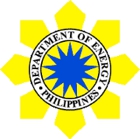
 The objective of the Project is to support the implementation of the Rural Power Development Program aimed at supporting the reforms and priority investments to improve the quality of life in the rural areas through the provision of adequate, affordable and reliable energy services. Specifically, the Project would (a) test and demonstrate viable business models that maximize leverage of public resources with private investment for decentralized electrification, (b) support the transformation of electric cooperatives through institutional and operational improvements; and (c) avoid CO2 emissions.
The objective of the Project is to support the implementation of the Rural Power Development Program aimed at supporting the reforms and priority investments to improve the quality of life in the rural areas through the provision of adequate, affordable and reliable energy services. Specifically, the Project would (a) test and demonstrate viable business models that maximize leverage of public resources with private investment for decentralized electrification, (b) support the transformation of electric cooperatives through institutional and operational improvements; and (c) avoid CO2 emissions.
The Rural Power Project is the first phase of an Adaptable Program Loan (APL) by the World Bank to the Philippine Government. The total program cost is US$233 Million with the initial phase (APL 1) costing US$26.8 Million.
The main project components include (a) rural electrification component; (b) partial credit risk guarantee component; and, (c) capacity building component, focusing on reduction of market barriers to the commercialization of renewable energy.
Project Design
 The project design avoids previous “business as usual” approaches to services delivery that are top-down and monopolistic and rely heavily on government funding. To maximize chances for sustainability, best practices and lessons learned from similar past projects has been as guiding principles. These include the following:
The project design avoids previous “business as usual” approaches to services delivery that are top-down and monopolistic and rely heavily on government funding. To maximize chances for sustainability, best practices and lessons learned from similar past projects has been as guiding principles. These include the following:
- Match the type of energy supply to actual needs of rural users.
- Use targeted subsidies to overcome the high upfront cost of new energy systems to the poor and encourage private investments and operations in offgrid areas.
- Require full cost recovery for O & M costs.
- Encourage local participation.
- Implement good sector policies.
The Department of Energy (DOE), as the primary agency in charge of the energy sector, has the overall responsibility for implementing the Rural Power Project. The Development Bank of the Philippines (DBP) as the borrower of the IBRD loan is responsible for onlending the proceeds to eligible sub-borrowers. The DOE administers the GEF grant associated with the loan.
It has established a Project Supervisory Committee (PSC) which serves as a mechanism for consultation and coordination among all implementing and participating agencies. To manage day-to-day project implementation, the DOE has established the Project Management Office (PMO). The DBP also has established its own PMO.